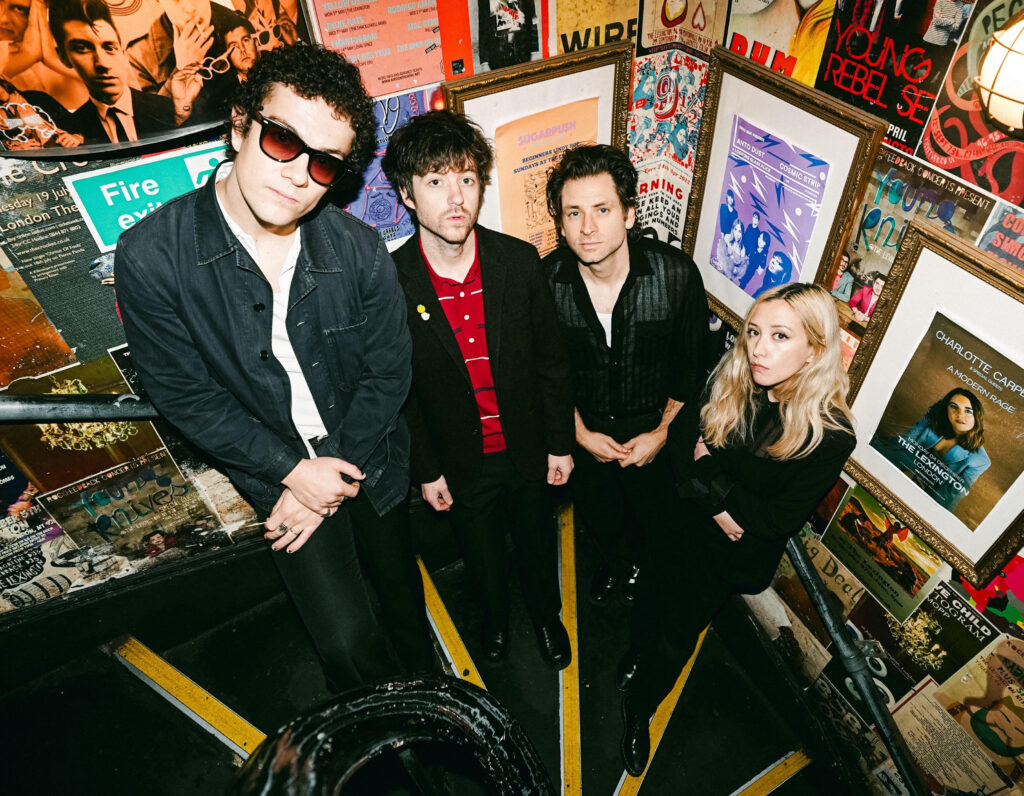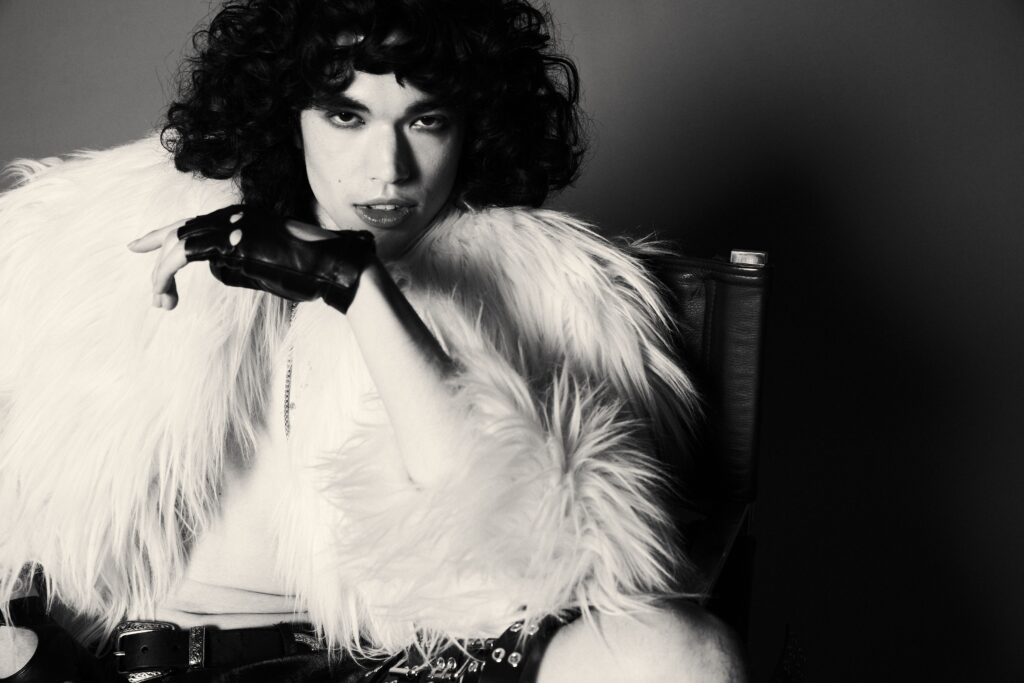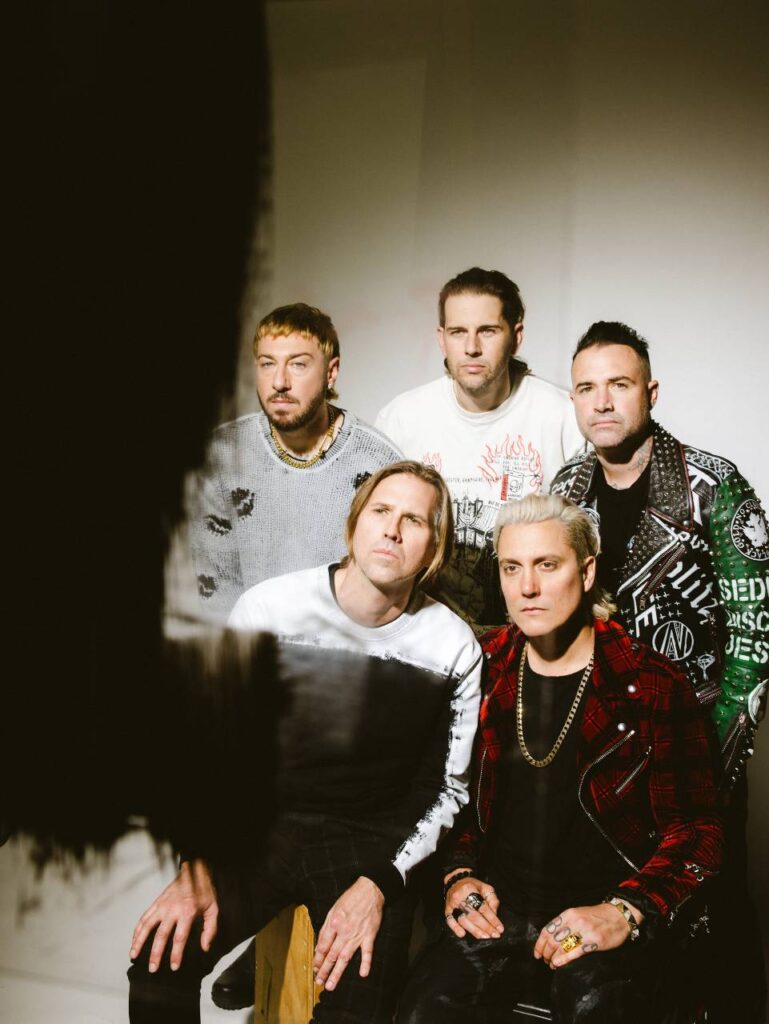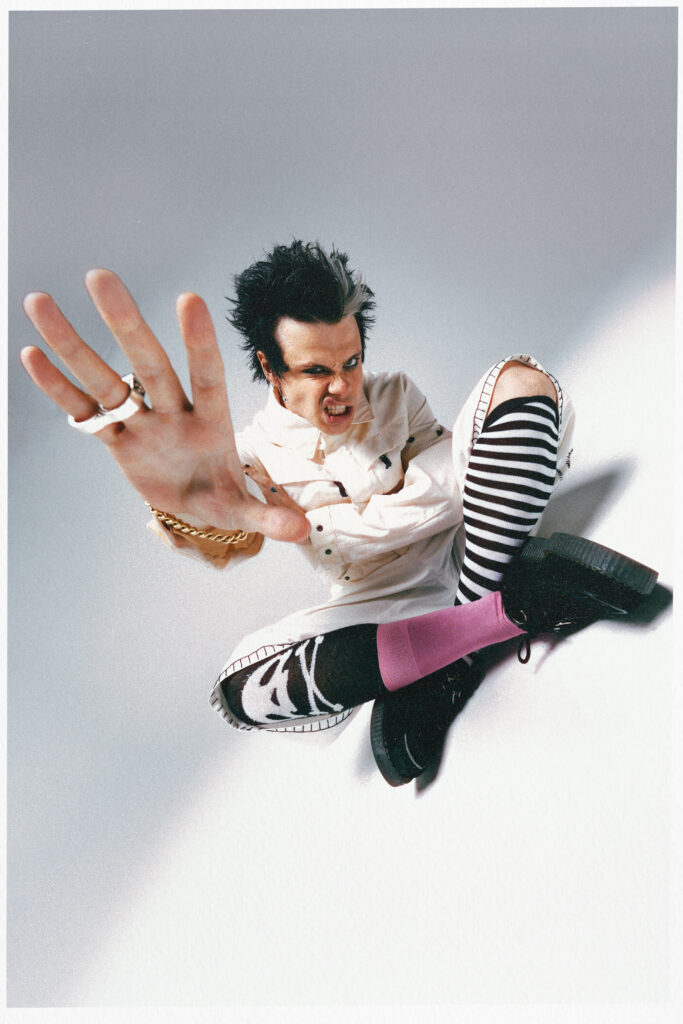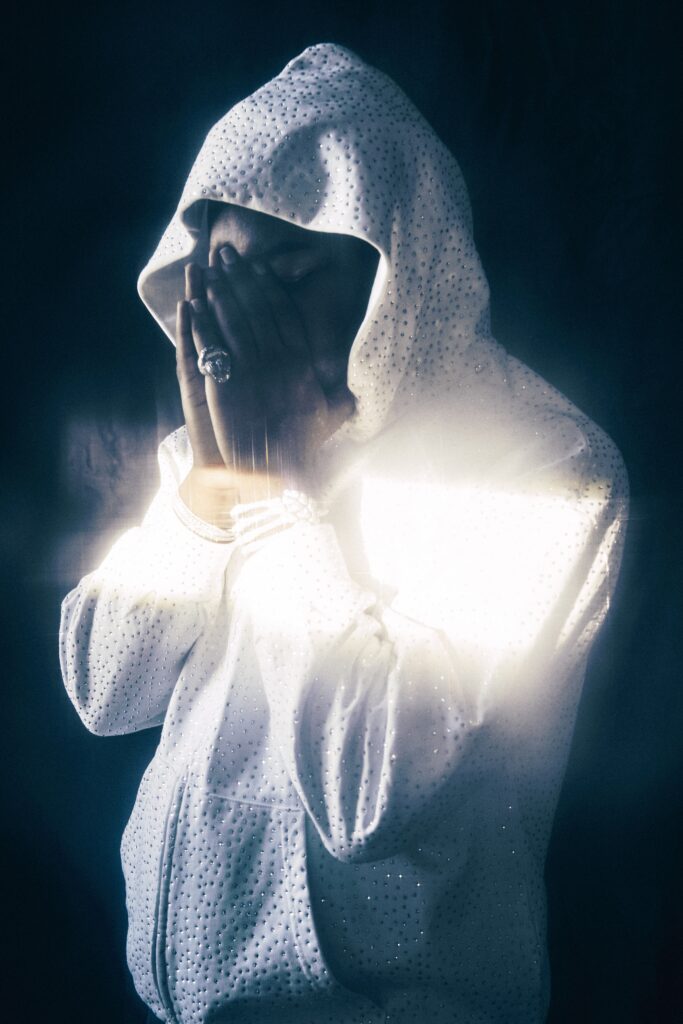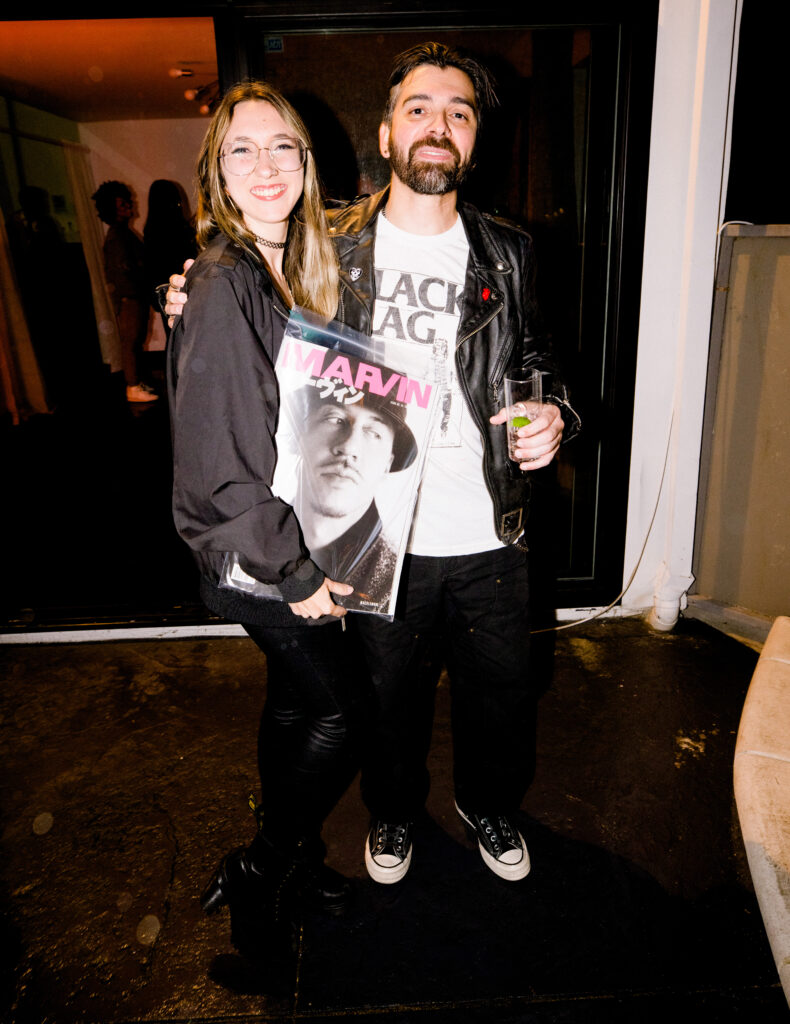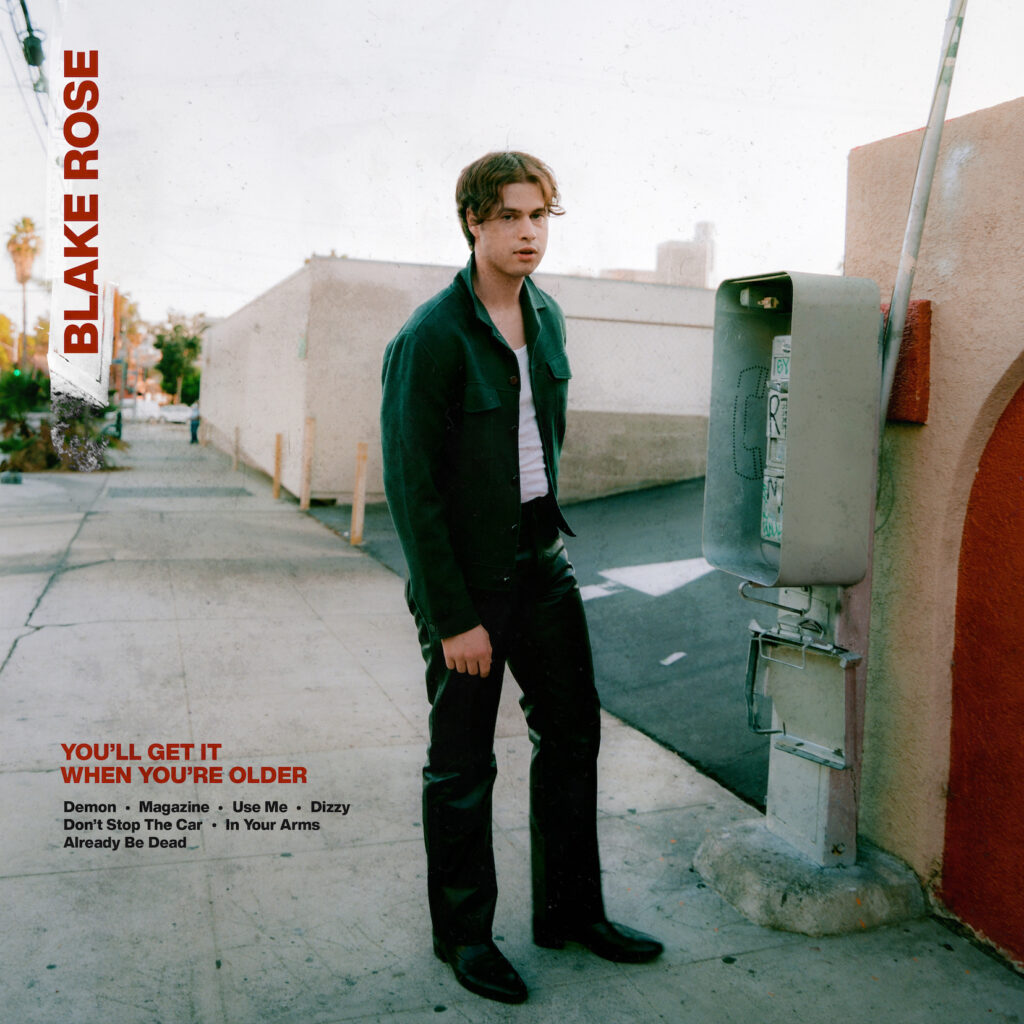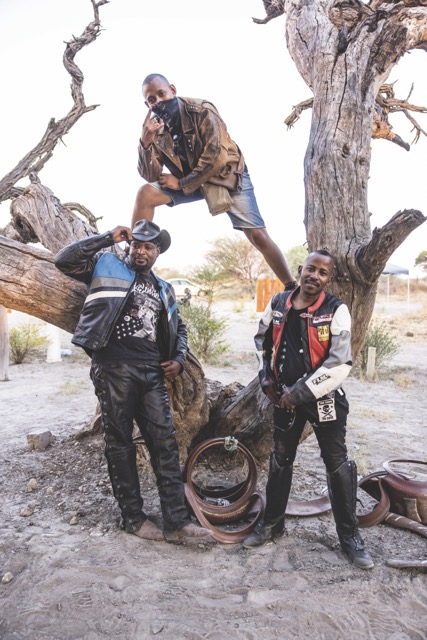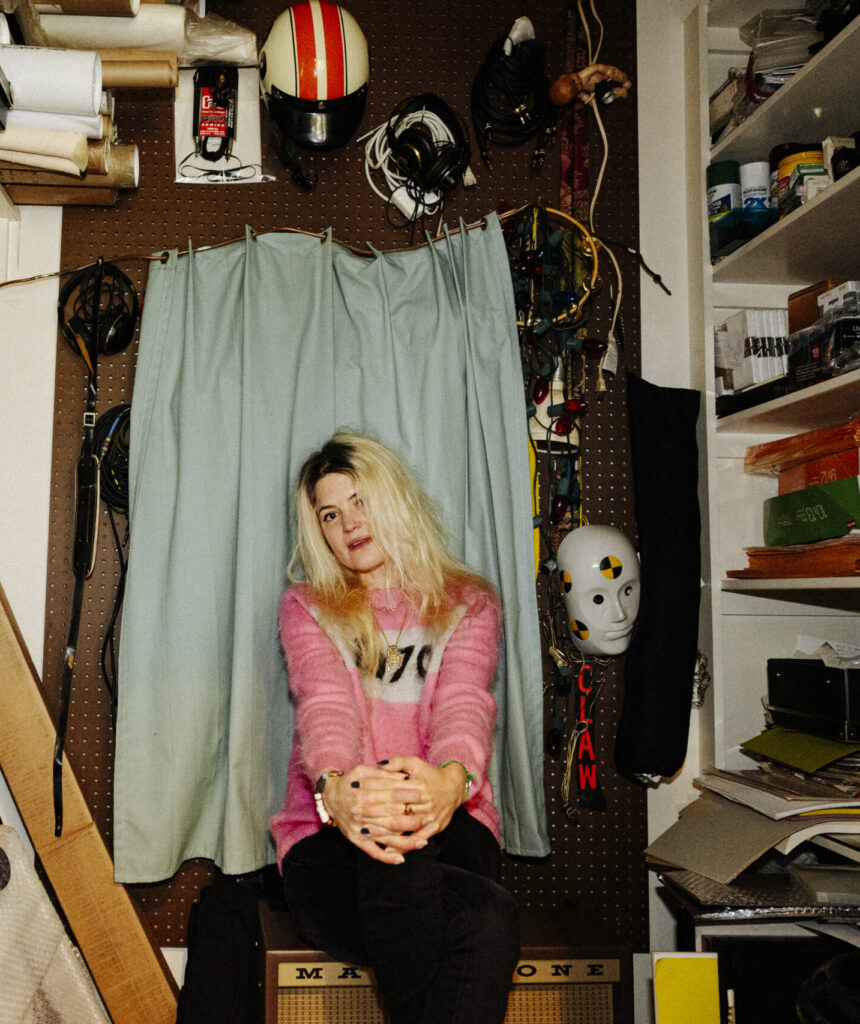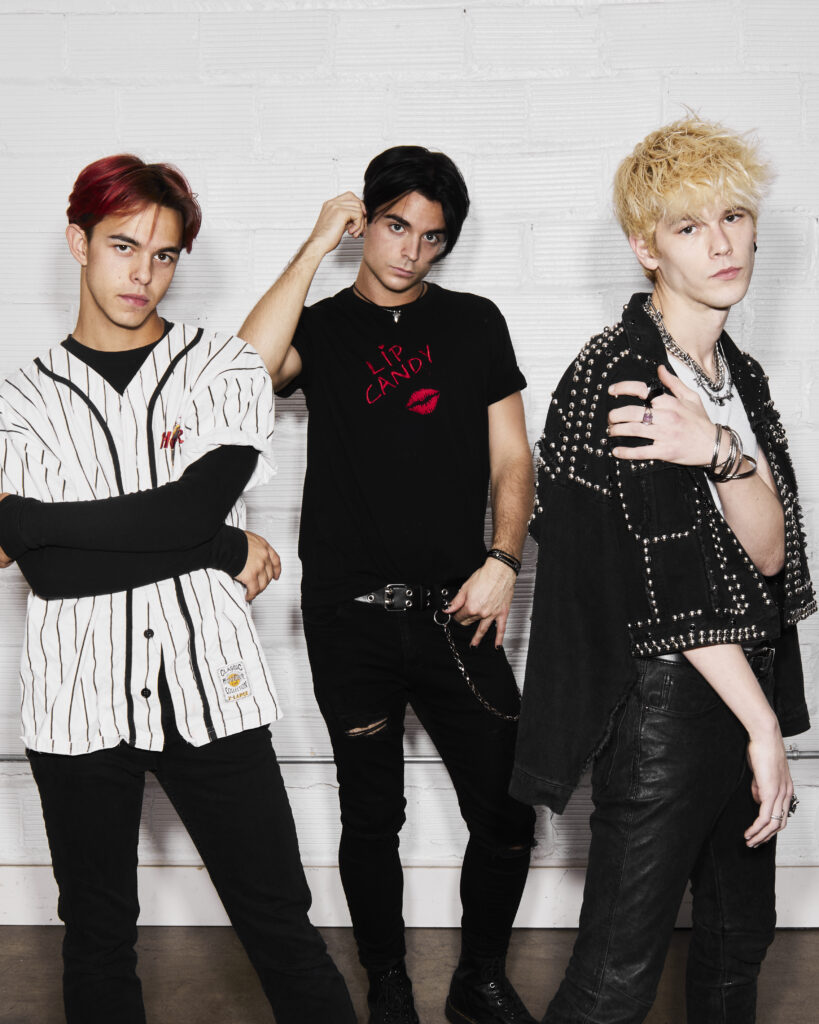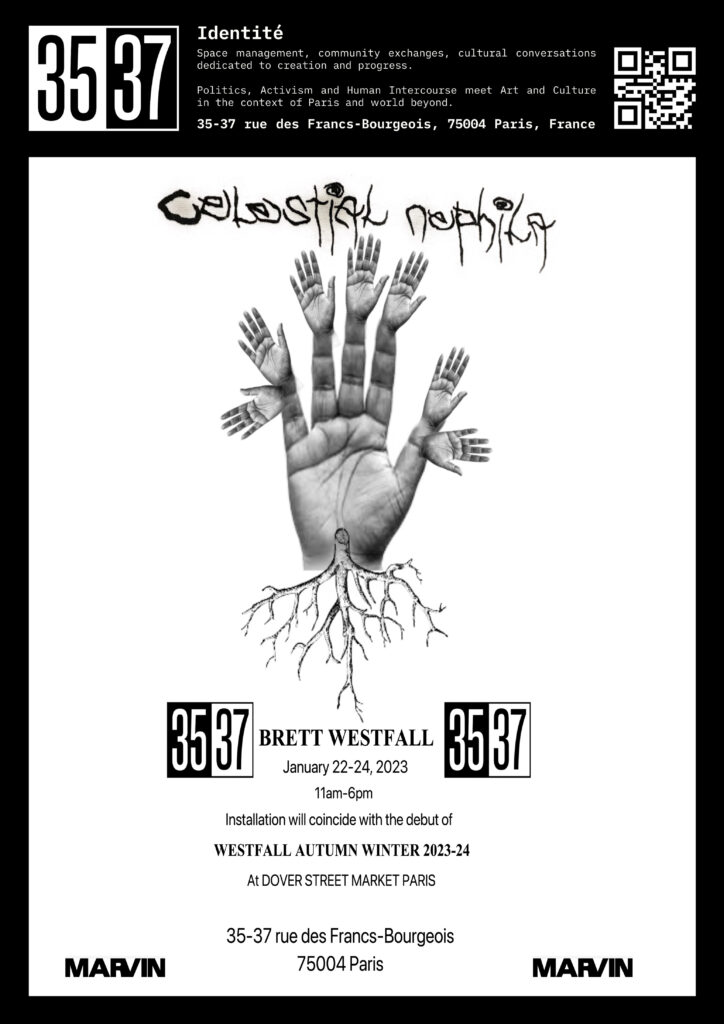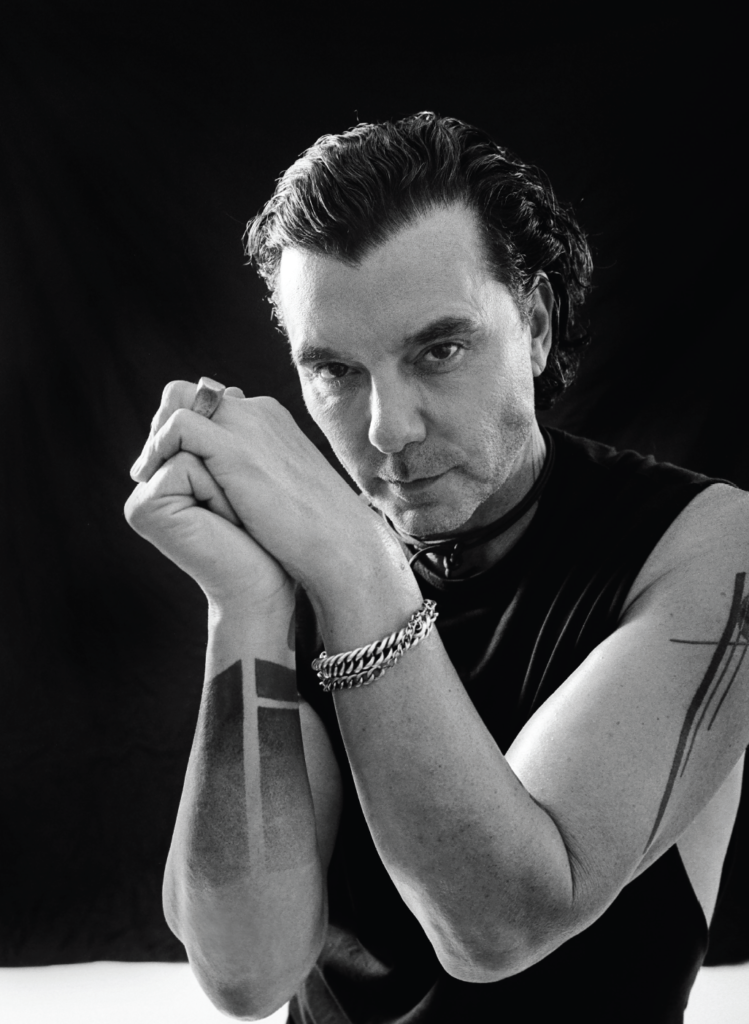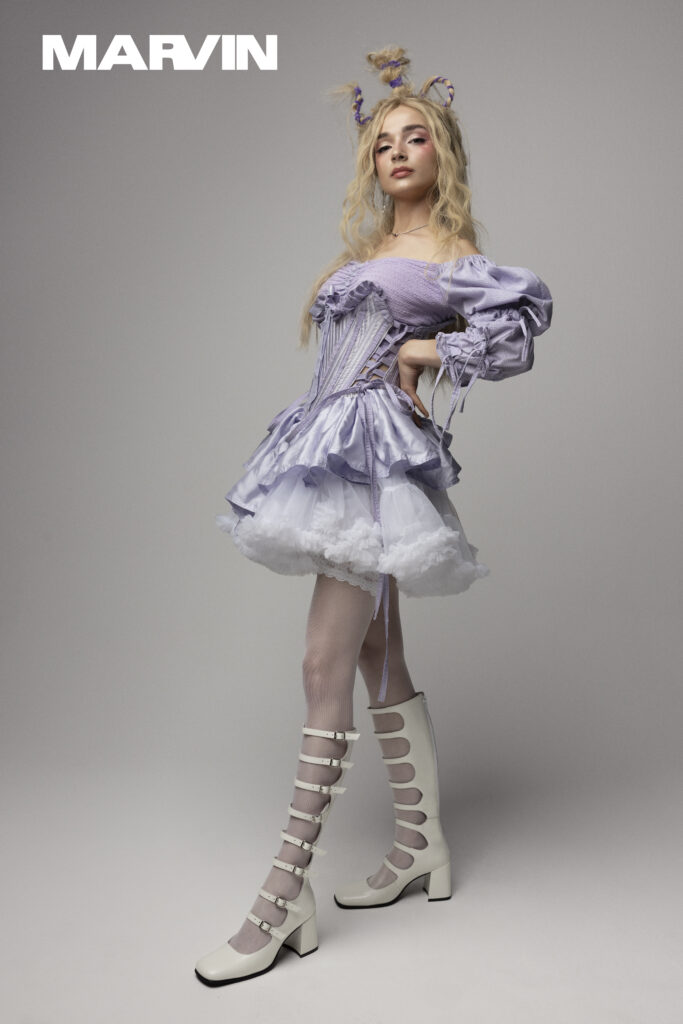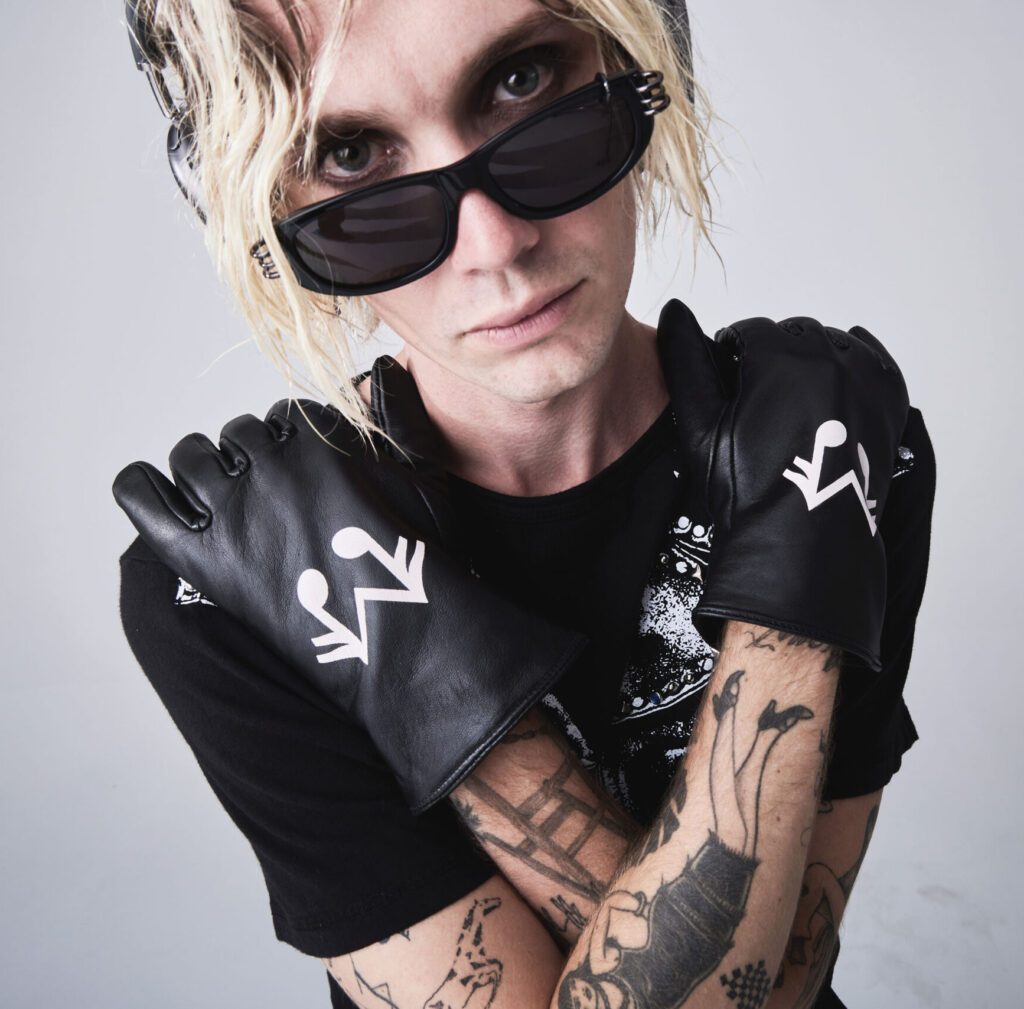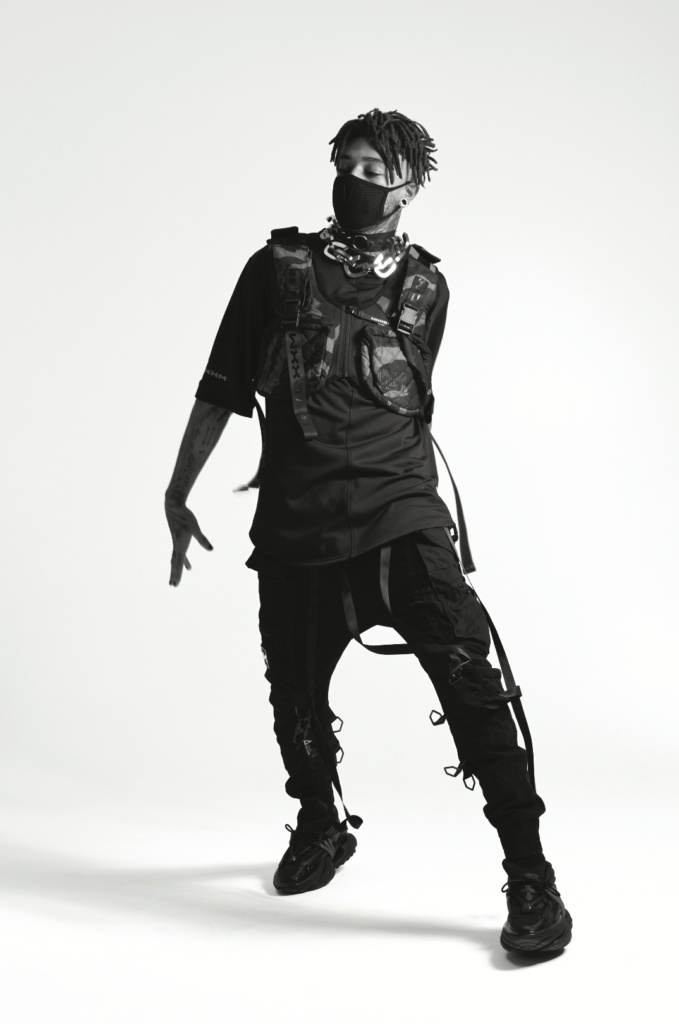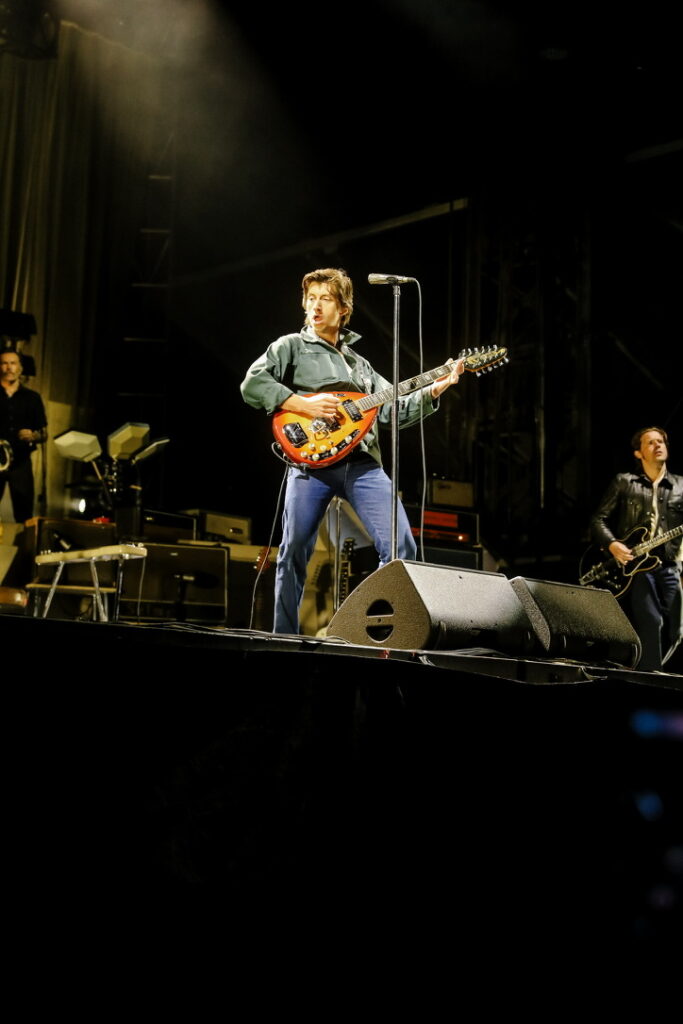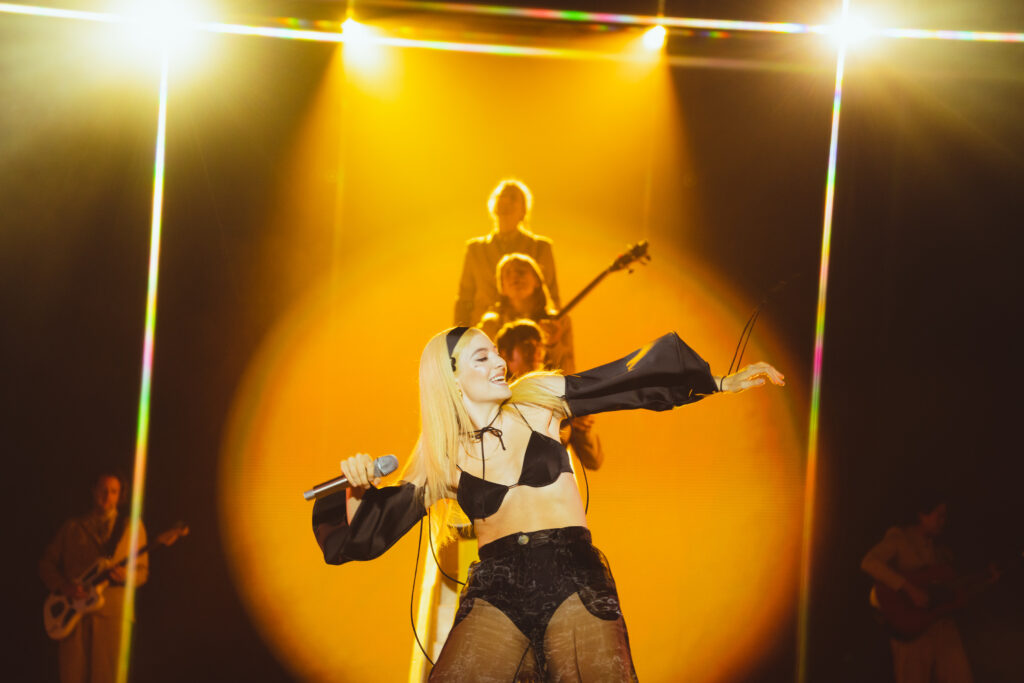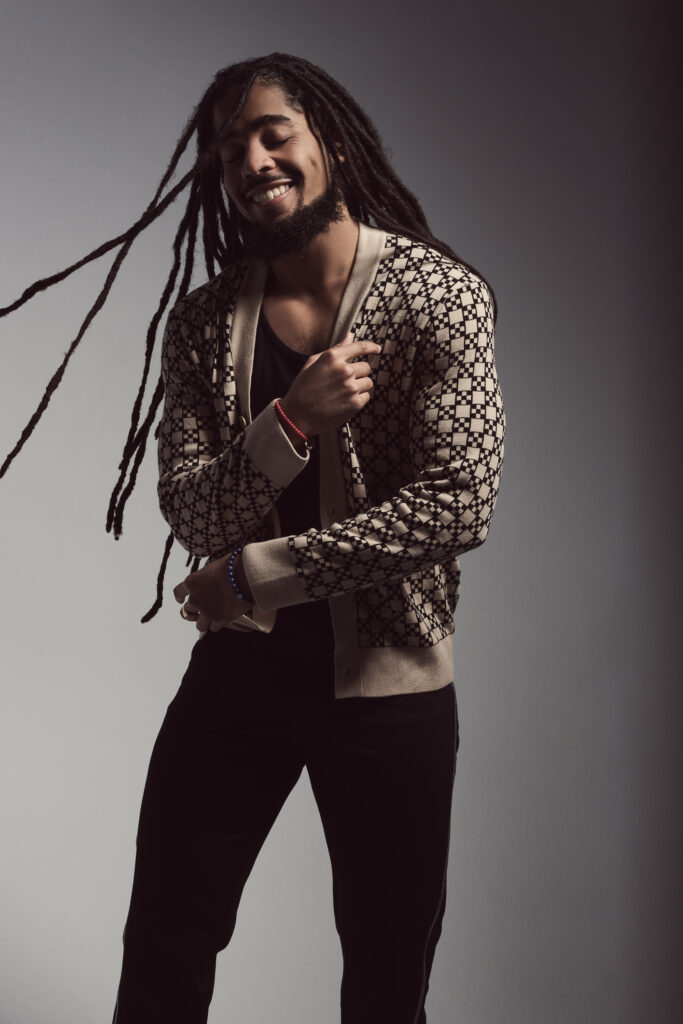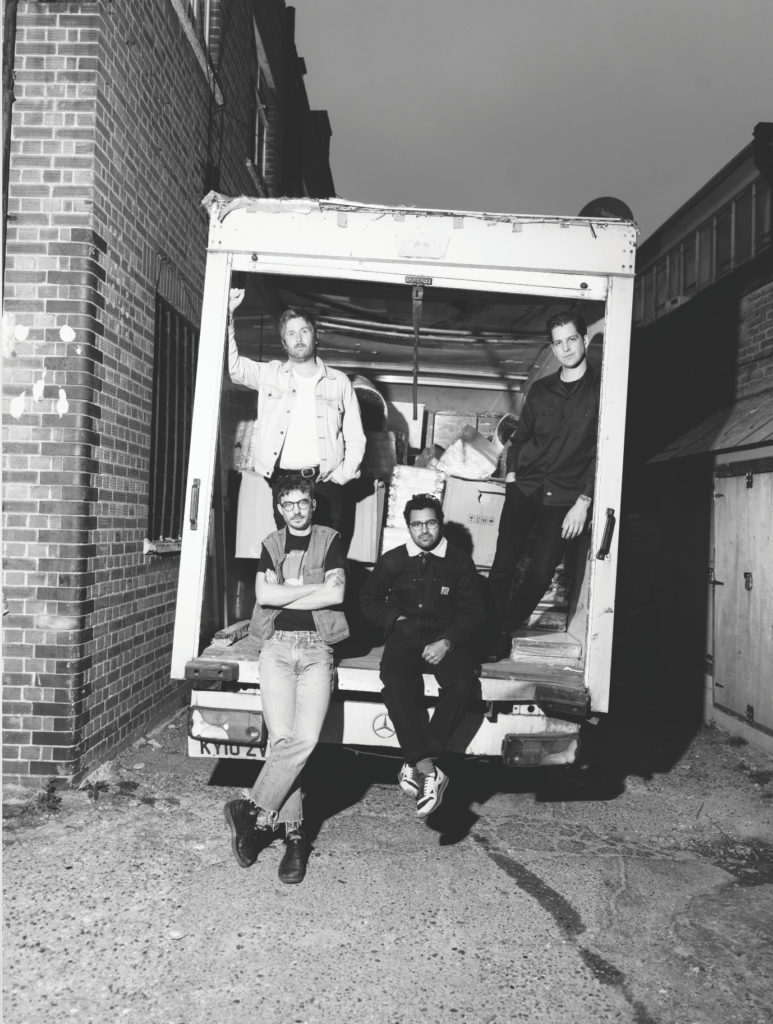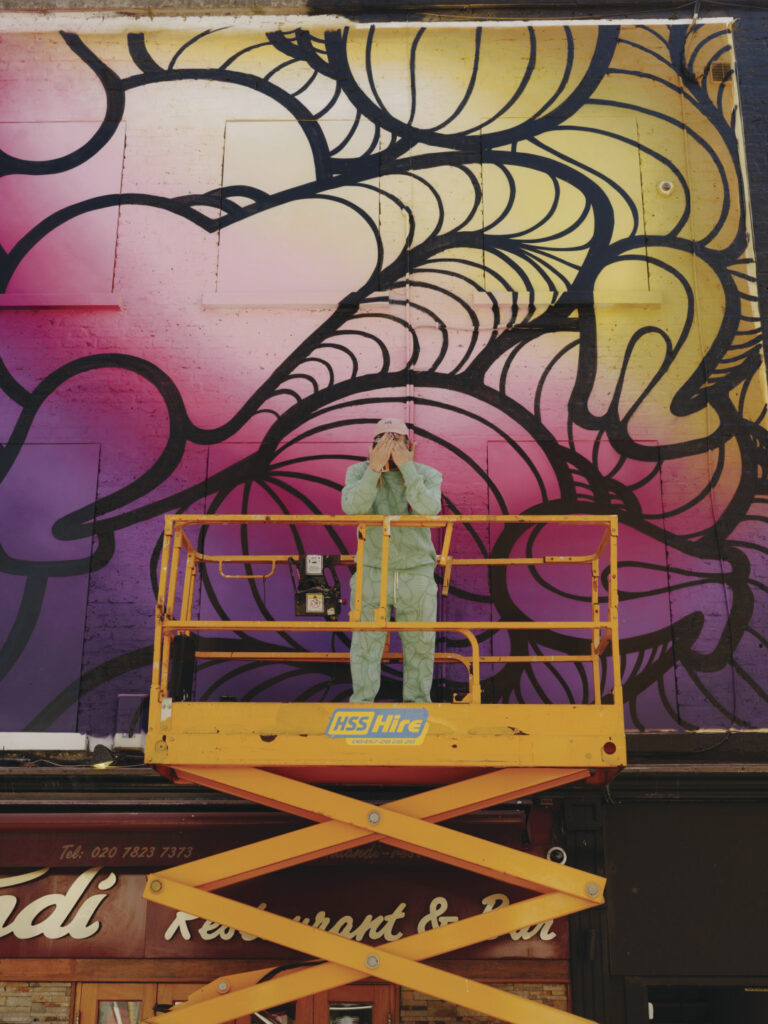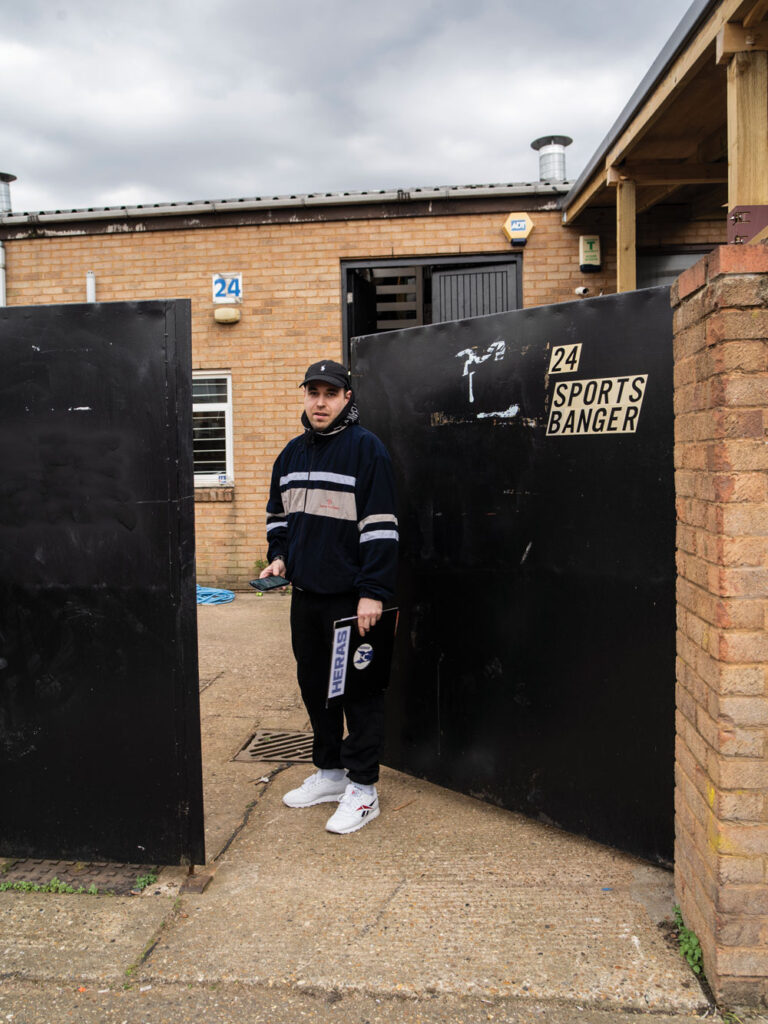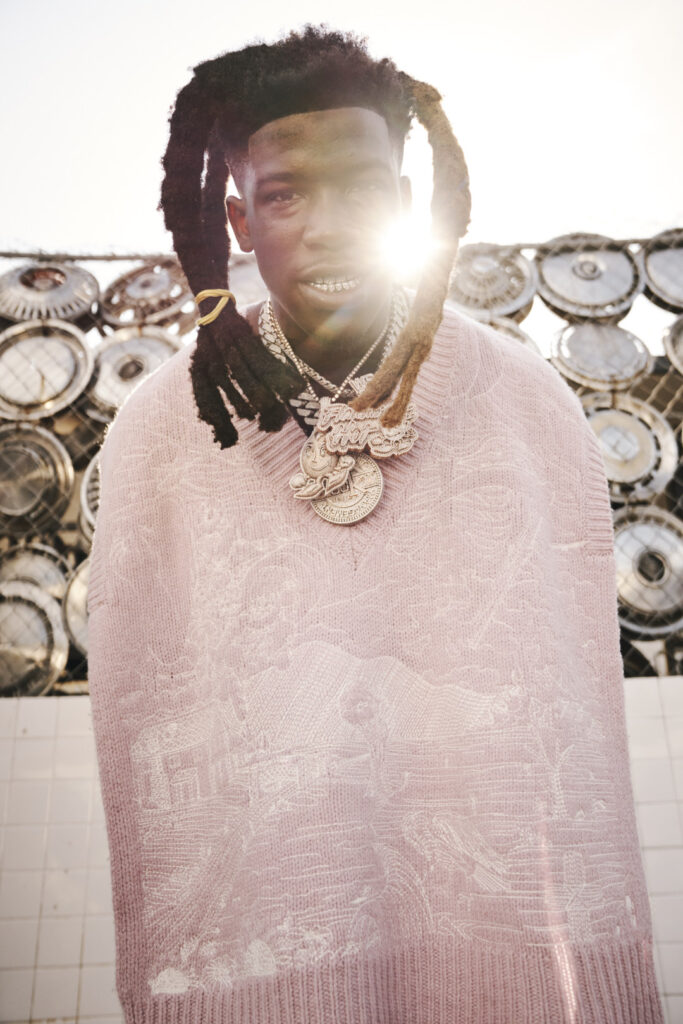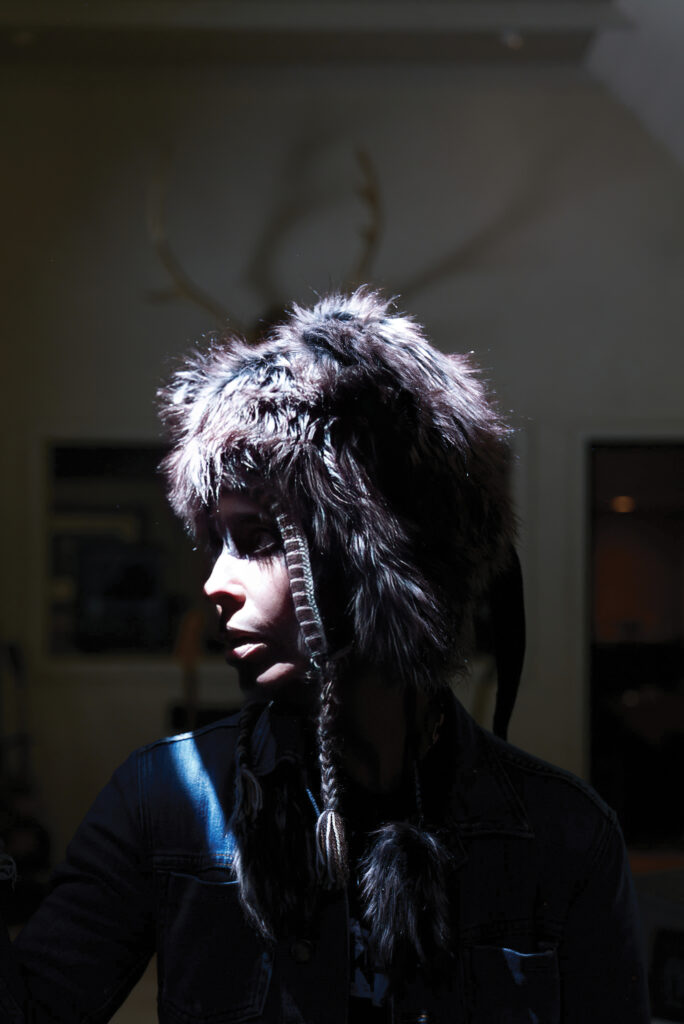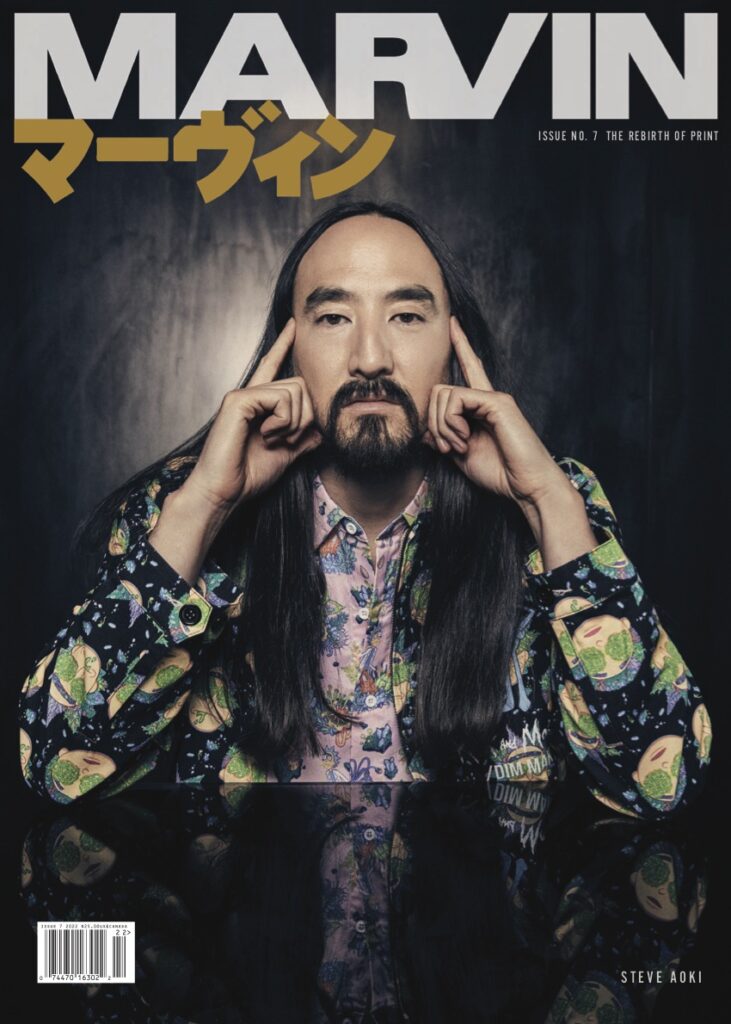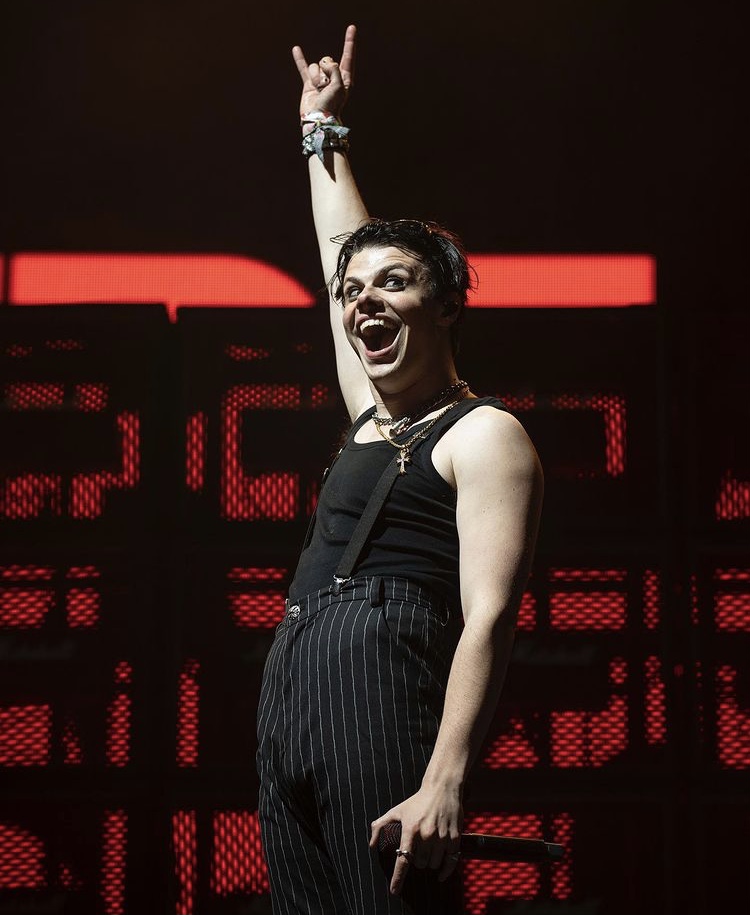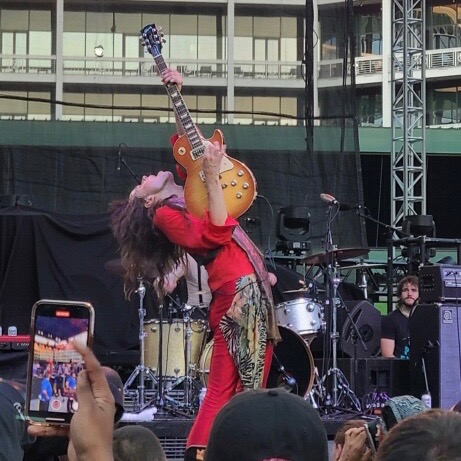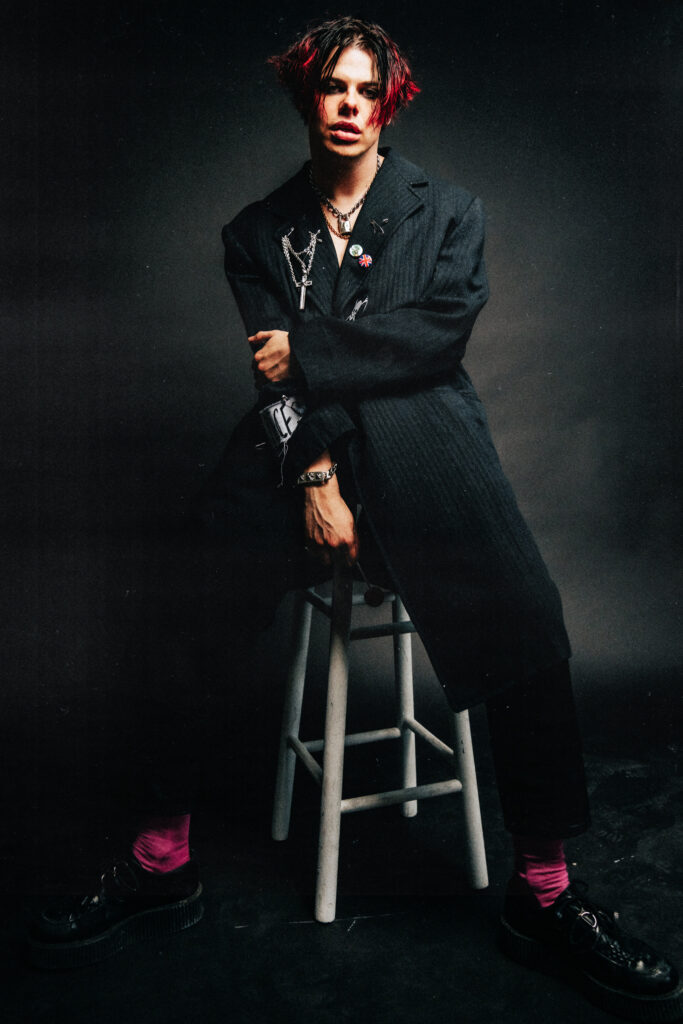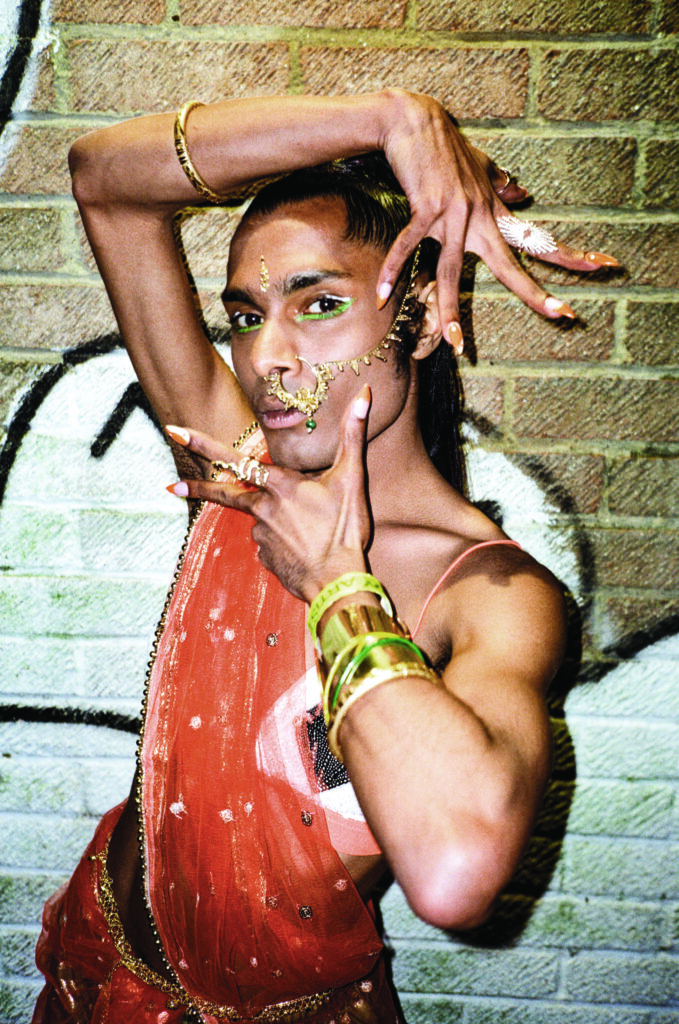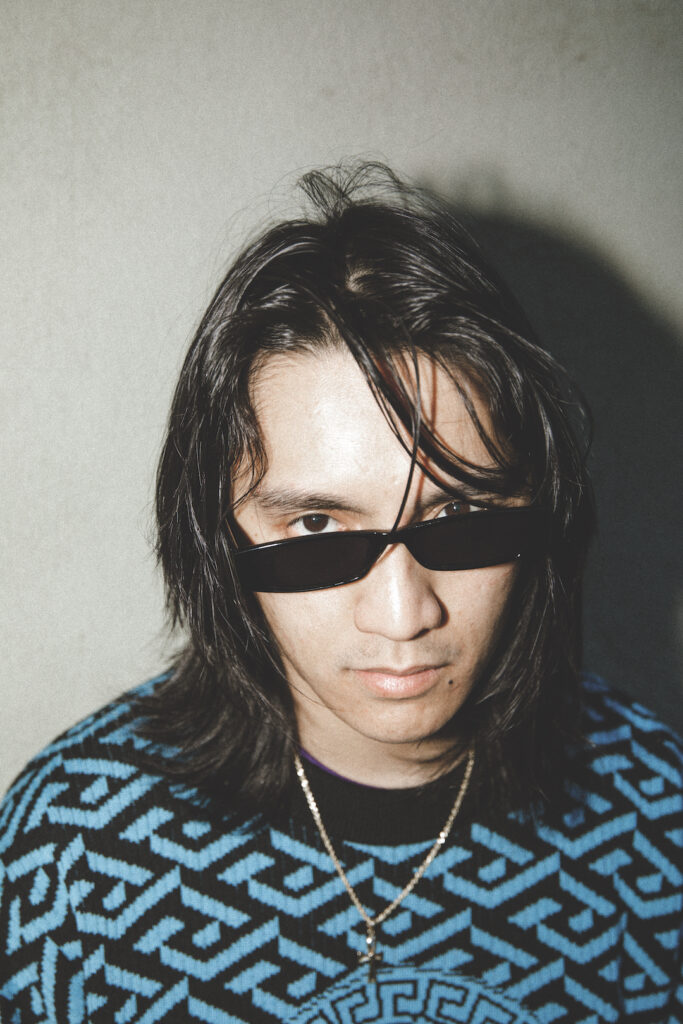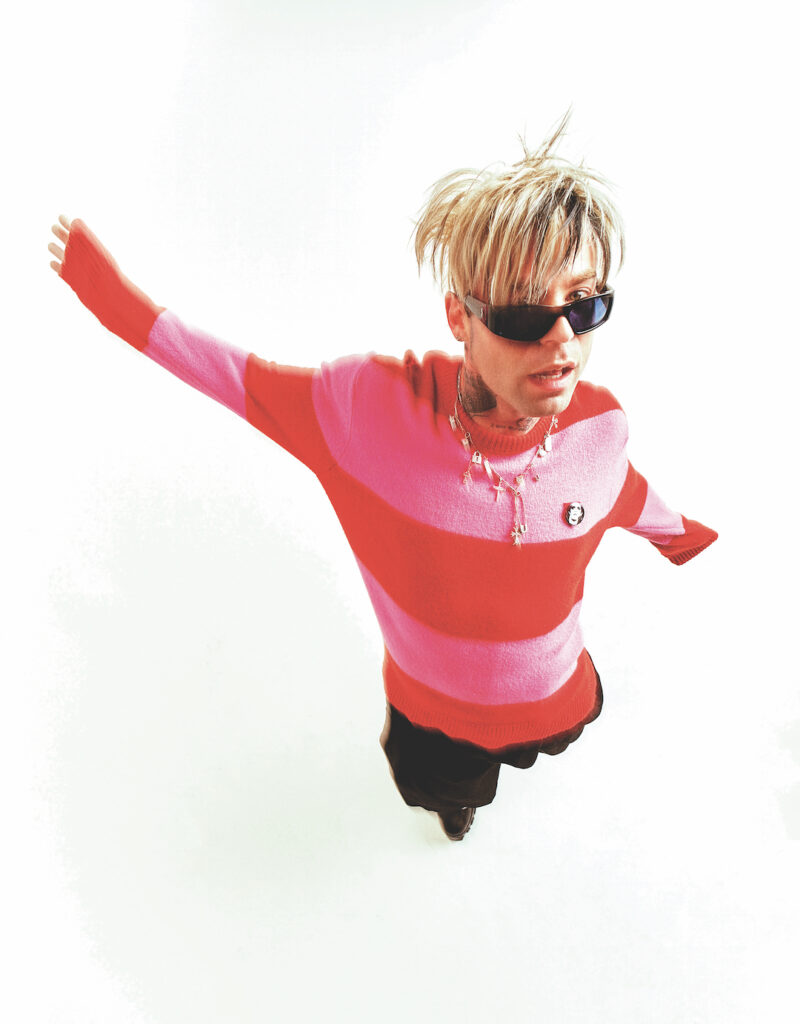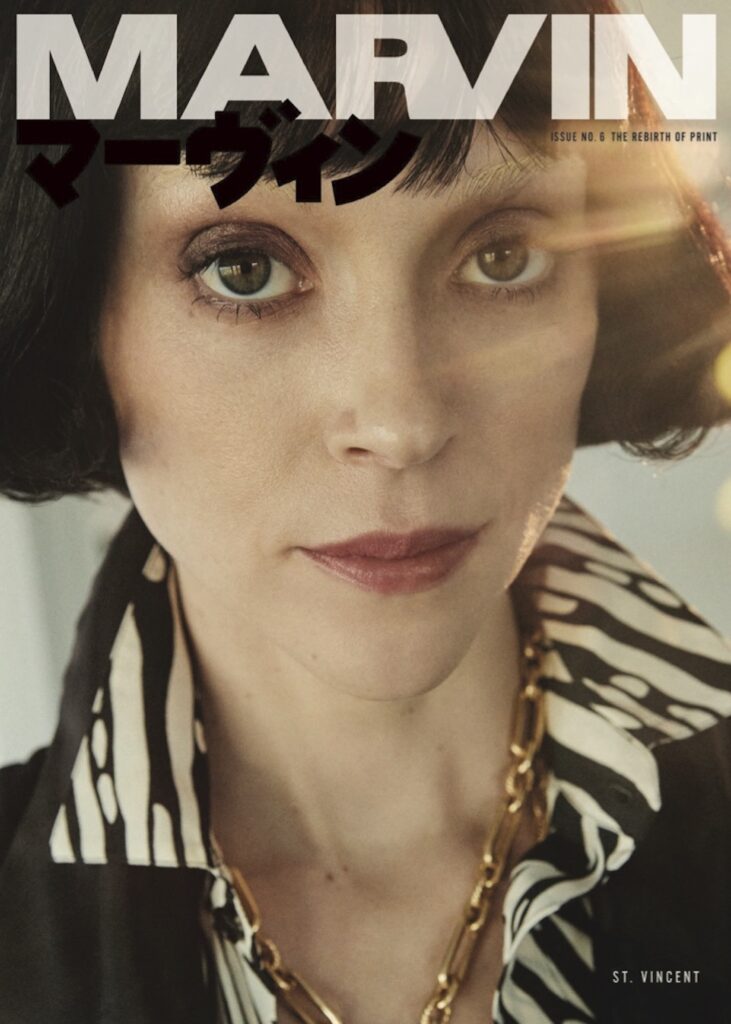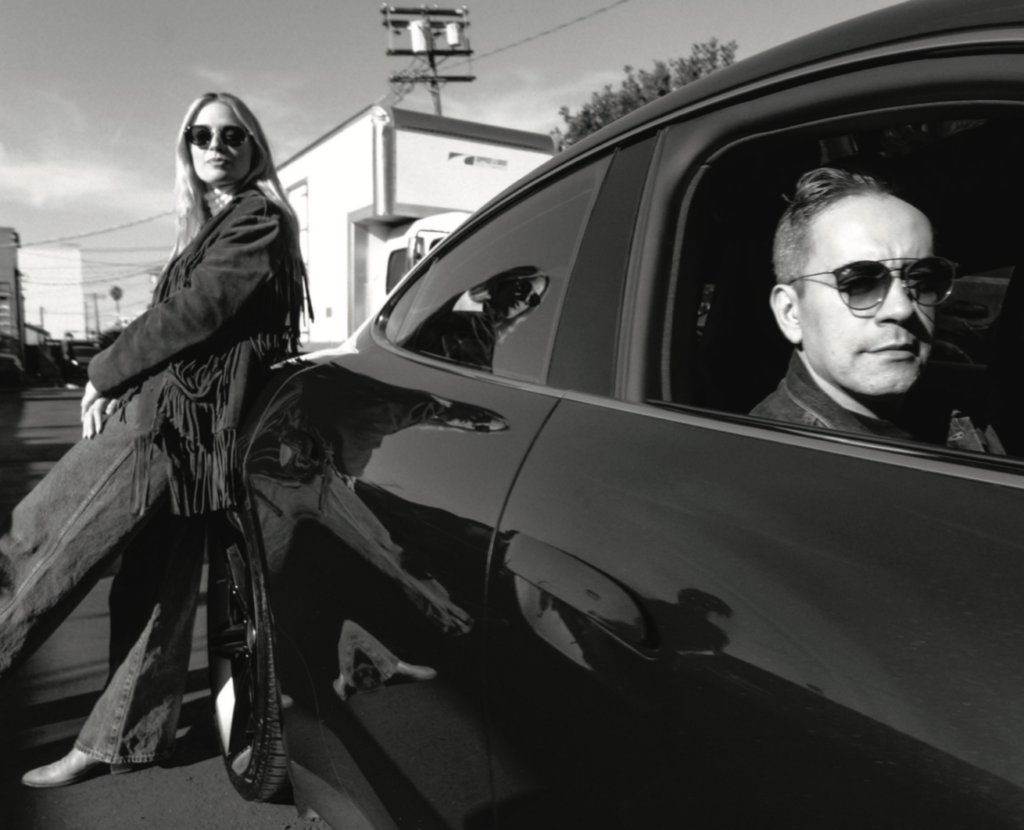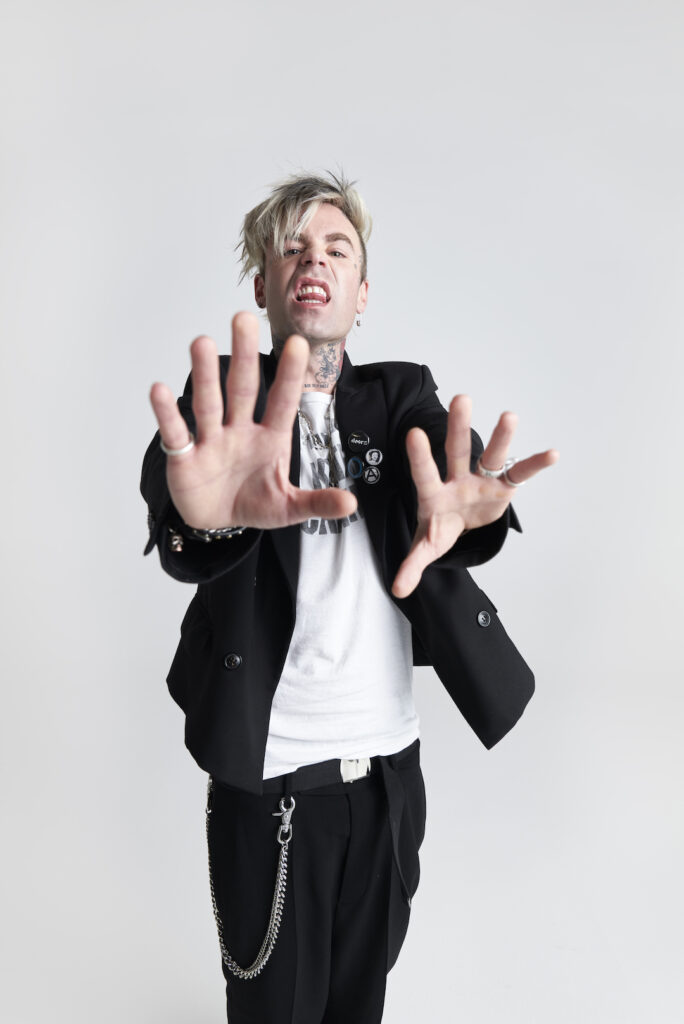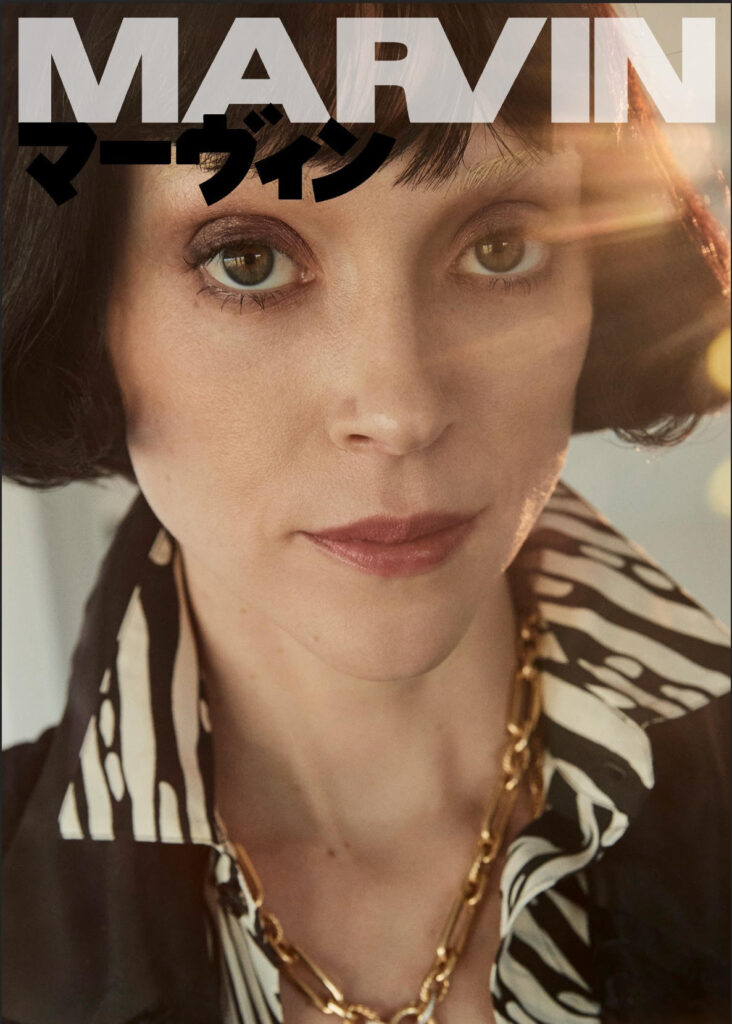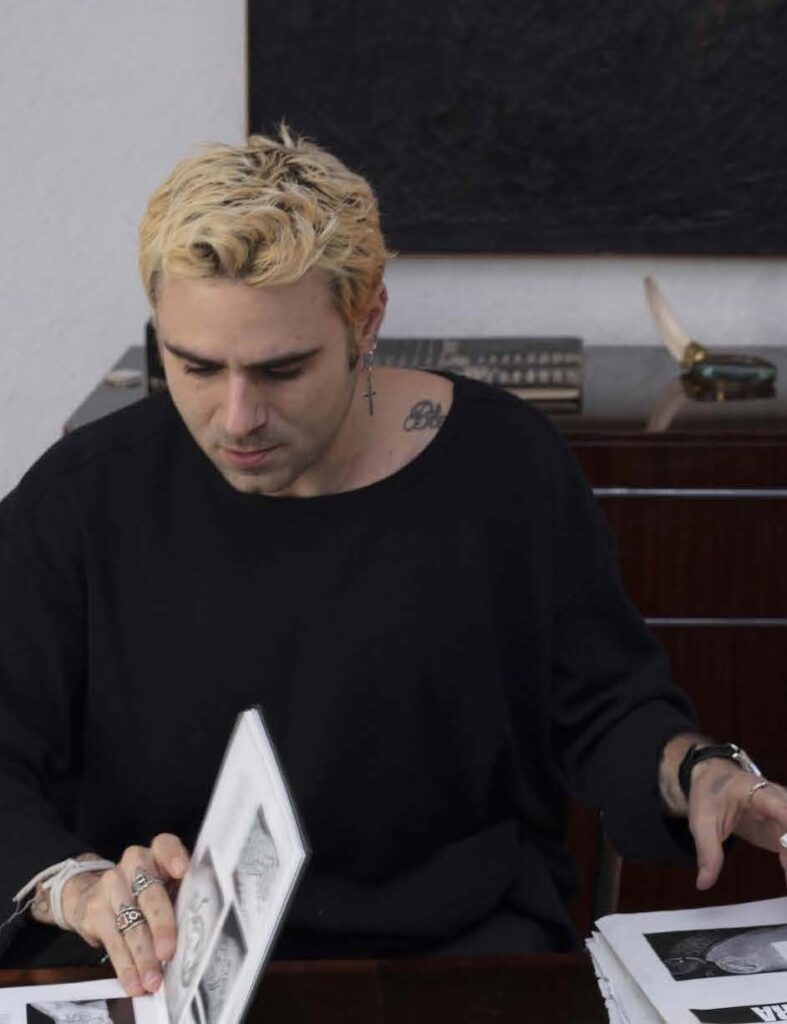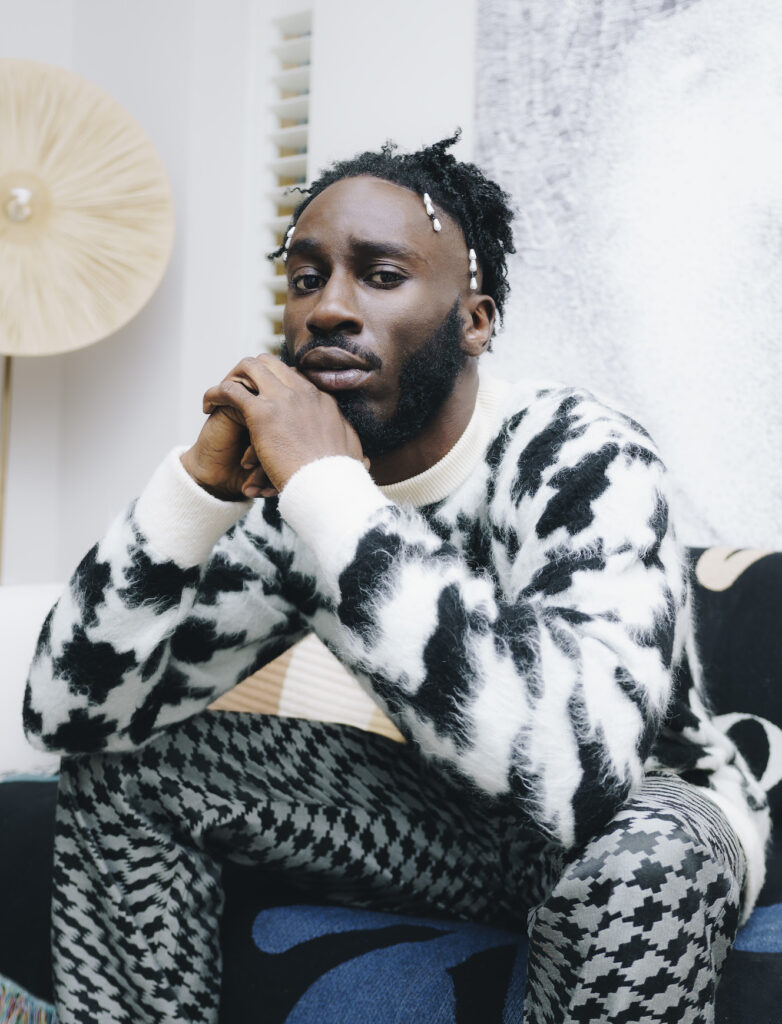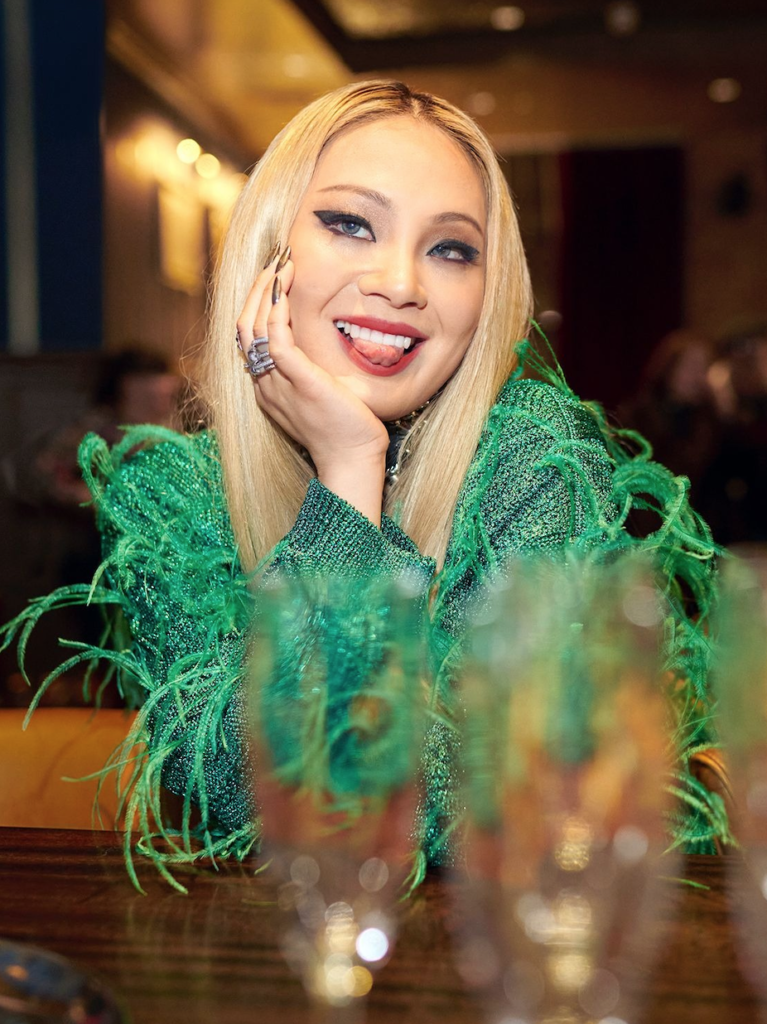Bobby Gillesie and Jehnny Smith on Working Together and Where Music is Today
Bobby Gillespie Photography by Tom Oxley
Jehnny Beth Photography by Johnny Hostile
Utopian Ashes was written on both sides of the English Channel, over the next year or so and then recorded in just five days in 2018. But, because of both Bobby and Jehnny releasing their own records, plus, you know the world being what it is, it’s only reaching our ears now. It showcases Jehnny Beth’s vocals in a way rarely heard before, while telling the mournful yet ultimately uplifting story of a married couple facing up to their love breaking down. It’s, as you’d imagine, a blues-infused rock and country record. MARVIN caught up with the pair of them to discuss the record, working together, and where music is at today.
Something that’s really struck me with new musicians is that traditional tribal divisions between genres have broken down. Do you like that?
Jehnny: Yeah. I do. I don’t know if it’s what happened here on this project. But I do think in the past 10 years, there’s been a shift in the way people listen to music. Young people switch from rock music to pop to hip-hop to jazz. I definitely do. I think doing a radio show and a TV show has helped me broaden my horizons and get really connected with the music of today — I realized how eclectic it was. Actually, for this project, when Bobby said, “I’d like to do something with you,” what I liked about it is that I’m not singing on this record in any other way than I sing on any other records. I was allowed to explore another side of my voice, which I think was really amazing. And unheard of before.
The new generation of musicians seem to be supporting each other too, rather than climbing over each other to get to the top.
Bobby: Our band was always like a gang. When we started the band back in the 80s, myself, the guitar player and bass player, all grew up in the same street, went to the same primary school, the same secondary school, and we had a very gang-like attitude. And the 80s were a different time for music. When we started Primal Scream, and I know when The Reid Brothers started The Jesus And Mary Chain, we were fighting against an aesthetic, which we felt had smothered pop music and pop culture. We were very, very vociferous in our opposition to that. Back then if you were in Glasgow, and you’ve never played gigs outside of Glasgow, you weren’t connected to anybody else. Through time, and, especially these days, with technology, people are more, maybe interconnected in some way. They might not ever meet the artist they’re working with, but they can make music by sending stuff via fucking email, or through the phone. There are many new ways to communicate and create which I think is great. And also maybe there’s less tribalism amongst genres, and that’s good as well. But at the same time, when I first came across Savages and Jehnny, they seemed very austere, stark and serious about their aesthetic, and what they did and didn’t want to do, and I appreciate that very much.
Jehnny: It’s interesting, what you say, because I feel that side of the band, was actually something that was starting to cause issues. 2013 was the beginning of that new sort of era of what you were you describing, Josh. It’s like you can’t really slash another band or another artist, unless you’re Liam Gallagher and you do it with style. But I think Savages had this idea of a gang. We had this idea of an identity and we didn’t want to differ from it. And I think that scared people. The problem with that is if you try to be too anti-conformist, you’re sort of seen as you can’t be “popular.” When actually, I think radical ideas sometimes in art are the ones that cut through the most.
British indie music in the 80s and 90s seemed to be riddled with genuine rivalries.
Bobby: We don’t have music press in Britain anymore. But back in the 80s and 90s, we had three weekly music papers. And every week, somebody would be fashionable for a couple of months. And then there’d be another band come out and people say this is the best band ever. And the music papers encouraged the bands to slag each other off. It was a very hostile atmosphere. It was encouraged. In the 80s, indie bands never played rock festivals. Right? It was heavy metal bands or hard rock bands. It was only in the 90s that the festival thing took off. If you were on the festival circuit, you maybe ran into other bands that were on just before you or on just after you. Maybe your dressing room was across the way and maybe somebody would say hi. I remember we played [Festival Internacional de] Benicàssim in ’97 and ’98, and we were hanging out with Goldie all weekend. You know, Mogwai, Jesus and Mary Chain, and Björk all played. It was an amazing line up. Both times we met loads of artists and we were like “we’ve got something in common.”
Jehnny: That’s kind of how we met. Not a festival but the last Suicide show at the Barbican in 2015. Henry Rollins was there, Bobby was there, I was there. And we were supposed to do different things. We didn’t know what— it was just sort of a backstage, “hey, hi,” kind of thing. It was madness, but it was great because I hadn’t anticipated it at all. I ended up being on stage with Bobby, which was completely unexpected, which is the chaos only Suicide can create. It was a great lesson for me, standing by the side of Bobby Gillespie on stage. Within a second, he was on the floor. It was magic.
Bobby: Yeah, it was. It was fucking great.
Jehnny: But also going back to what we love, what we hate etc. I think with artists I collaborate with, I like to bond with them in the same refusal of some genres or some artists. But that’s kind of the story of our little mythology that we create, who do we put on top of things? And who do we not like at all? I think it’s always nice when you bond in hatred as much as love. At the moment there is this generation who wanted to create links between artists, between women especially, trying to support everyone. I think it’s definitely part of a wider move in Western culture, trying to be a bit more aware of tragedy ahead of us in a way, so there is maybe less time for shooting in the ranks.
That’s a nice way of putting it. You cut your finger pretty bad last year Jehnny, had you already wrapped the album by then?
Jehnny: [laughing] It was all done by then. When did we finish it?
Bobby: We recorded in the summer of 2018 and then it was mixed that December. Five days to put down the basic backing tracks, plus vocals, I would say. The next five days was strings, horns and overdubs.
Jehnny: But before that there was a lot of writing in me and Johnny Hostile’s studio in Paris, and Bobby’s studio in London. There was a lot of back and forth. Bobby and I were both releasing records, so we pushed the release of this record back till now.
So it wasn’t the finger?
Jehnny: No! I cut it during the first lockdown in France, with my coffee maker. It was really serious though, there was blood everywhere. I had to have an operation. It was mental, I’d cut the tendon. It was pretty intense. Now I’ve recovered but I still have no feeling in the end of it.
How much communication was there between you guys before you actually got in the studio?
Jehnny: It started straightaway. When Bobby asked me, we were standing side of stage for a Massive Attack show in Bristol. He was like, “Why don’t we do music together?” It was Andrew Innes, Johnny Hostile and me. I felt at the time that I really needed that. I had been in Savages for five years. It is tiring to lead a band and try and bring momentum all the time. It was nice to suddenly be asked to be part of someone else’s journey and vision. It was very relaxing in a way. I just needed to sing! I loved that. I was also very flattered of course. I tried not to show it.
Jehnny, you’ve mentioned that you give the people you collaborate with a lot of space. How much space did you give Bobby?
Jehnny: [laughing] Oh, Bobby had all the space! I said that about my solo record from last year. When I invite people into my world, I like them to have carte blanche on their ideas, for them to have full potential to work as if it was their own record. With this record it was different because it was really Bobby who invited me in, which was a different position for me. Bobby made space for me. I learned a lot watching him start with an embryo of an idea and then growing it. I loved watching that and being privileged to see it from the inside. It ended up being much more than that but in way just having that was enough for me, just to be there, watch it and be part of it. It was a privilege. Sometimes I like to be in different seats and when you collaborate with someone you can do that. Bobby was definitely driving the car but I was sitting next to him and we were having a nice time.
Bobby: What was interesting for this record was we found that Jehnny could sing very melodically and write really good melodies. In Savages, it’s very staccato. It’s like her vocals are following Gemma [Thompson’s] guitars. The rhythms are very jagged and guitar-driven. With this album there’s more space, and, you know, it’s more like a melodic singer/songwriter record. I think it was lovely to hear her sing in a way that she’d never, to my mind, been heard before.
Jehnny: In a way, it was going back to my roots because
I used to listen to a lot of Johnny Cash and Jim Carter and all those records. When I started singing, I’d sing jazz.
So in a way it was even going back to that. Savages was a detour in a way.
Bobby: Andrew Innes and myself, when we heard Jehnny’s voice together with mine it just worked. It sounded right. And that’s not always the case when two voices come together. There was a bit of magic there.
Jehnny: The way I see it is Bobby’s voice is the broken soul and my voice was there to envelope that like a warm blanket. There’s real characters in this record and my voice is making sure this character can be vulnerable in a way and show sides of him that we might not have seen before.
It is a sad record but the soulfulness does lift you up – there’s an optimism in it.
Bobby: I think that sad music is uplifting. It gives strength. I like a lot of sad music but when I listen to it, it doesn’t make me feel bad, it makes me feel better. Like shared pain. You can relate to the lyricist and what they’re singing about and their experience. It can perfectly describe a feeling or an emotion and it just does something to you inside. It’s inspiring.
Jehnny: It’s exactly the same how we were saying earlier about rage and hatred and being able to express them. In music and art, we can express negative feelings—like sadness and anger— and then feel elated from hearing and expressing it. It’s a safe place to do it.
Bobby: I think the idea is to turn pain, anger, frustration, dark feelings and channel them to make art that’s beautiful. That, then, becomes cathartic. It can heal the person that’s created it and heal people who are listening to it. That’s what I feel with this record.
Jehnny: From where I was standing during the making of the record, and doing the writing specifically, I could see great courage in what Bobby was writing. It was very inspiring. For example, in the song “You Can Trust Me Now”—which to me is the core of the record in terms of the pain, regret and the desire to become a better person. I think that’s part of Bobby’s personality, which I felt was very touching to see. I love seeing men connect with their emotions and try and change. That’s my favorite song on the record for sure. It’s a great memory as well because “You Can Trust Me Now” is something I had written about, it was something completely different in my notebook, and Bobby saw it and liked it. Actually, he said to me that he didn’t think he was someone who could be trustworthy.
Bobby: What I meant by that was I felt you could trust me as a friend, but as a lyric it was absolutist. I thought I’d try to steer clear of absolutist statements. Especially if someone’s writing from a point of former addiction, say. They can always fall back into the addiction at any time, so they’ve got to do the work to stay clean. Like in life, nothing is certain. I believe that. The older I get, the more I realize I can’t have certitude in anything. So really that’s what I meant, rather than you couldn’t trust me as a friend. I did play it to a couple of friends of mine who have had long term substance abuse problems. One of them was Peter Perrett from The Only Ones and he thought it was a beautiful song. I told him I was questioning the line. He said it was a really good lyric because normally when somebody says that you can trust them, you know that you can’t.
Jehnny: That’s the contradiction that’s beautiful.
Bobby: Peter’s met some real dark characters in his time, you know real underworld people, so really, I took this song to be about somebody asking to be readmitted into the human race. Because they were ashamed of behavior or whatever. Really it was that, trying to become a better person who can hold their head up and get some self-respect and dignity back. To me, it was more about that really. It sits nicely with the music. It can depend on how you sing it too. Like in The Jungle Book when the snake sings, “Trust in Me”—incidentally, that’s one of Siouxsie Sioux’s favorite songs.
Jehnny: It was beautiful to be able to have conversations in the studio about things like past addiction and sharing funny anecdotes but also the struggles and things you put in the song. It was nice to be trusted with that.
Is the audience your friend or enemy in a live show?
Jehnny: On stage I like confrontation as much as I like a sense of communion. I like it when shows are infused with both and go from one to the other. With some of my favorite performers, like Nina Simone, there is a feeling of being in the presence of greatness and of otherworldly, superhumans. I like the fact that there is a sense of positive manipulation. But in terms of the audience, I don’t see them as enemies at all. Maybe when you hear people say that, they mean that you don’t necessarily have to give the audience what they want. But maybe take them on a journey that they didn’t expect. I don’t know what the goal of music is but I have the sense that it’s a way to unite or feel connected.
Bobby: When I was in Jesus and Mary Chain, people were hostile when they came to the gigs. In England that is. In London there were riots — people came to hurt the band. They’d throw missiles, the PA stacks would get pulled down. I remember walking onstage at the Electric Ballroom in Camden and before I’d even picked up my drumsticks there were whisky bottles whizzing past my head. It was almost like being in a soccer riot at some of those Mary Chain gigs. The gigs were stopped because of the violence. When Primal Scream started we had a combative approach to gigs. Although we were playing very gentle folk-rock-psychedelic- inspired music, we started with the premise that nobody liked us and we weren’t going to try and win the audience over. We were just going to play our music and fuck ’em.
Jehnny: I can really relate to that because at the beginning of Savages, I felt that in London there was a lack of interesting gigs. Sort of the middle of indie rock and no one was really doing anything onstage to connect. There was this shoegazing style. Bands were onstage because their agents told them to play the gig, so they could be booked to a festival. But there was no real reason for them to be on stage other than that career aspect of things. It was almost like bands weren’t even aware there was an audience. I remember there was a [Japanese] band called Bo Ningen who were really swinging their guitars around. I would go to all their shows and take pictures because I was fascinated by that. With Savages I didn’t try to recreate what they did but I wanted to create the same idea of wildness, and to stare people in the eye. I remember I was so against the shoegazing. I wanted to look people right in the eye. I wanted an openness. “Look at me, I’ve got nothing to lose. This is safe place, there’s nothing you can say or do that can harm me.” It was a real liberation. @primalscreamofficial @jehnnybeth


